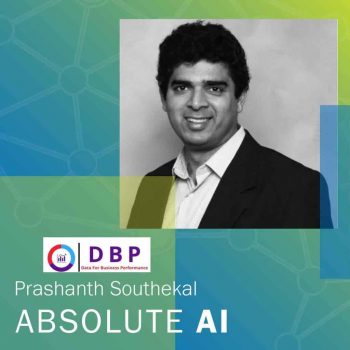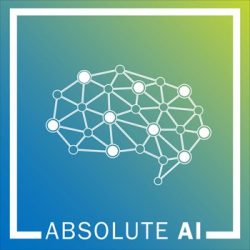Highlights
2:00 Prashanth’s Journey Into Technology, Data, and the DBP-Institute
6:54 Analyzing Data, Educating People, and Decentralizing Decision-Making
13:20 Using Data Analytics to Assist Companies That Are Resistant to Positive Change
19:43 Managing Your Carbon Footprint and Collecting High-Quality Data
30:38 Lasting Insights From Prashanth’s Books
Prashanth's Insights
“Education is a key enabler for change. Whatever journey you’re embarking on, the change management will be very tough. One of the prerequisites to enable this change is education, so we want to help clients improve their literacy in the community so that the technology and solutions they’re embarking on in digital data and analytics is much easier.”
“Data is an asset only if you know how to manage it. If you don’t know how to manage it, it becomes a liability.”
“Decision-making is a combination of two major things. One is your intelligence, which is your existing body of knowledge, which could come from science, your experience, and so on, and next, number two, which is your data analytics. You need a combination of both.”
“If there is one skill which I have developed over the last 25 years of my experience it’s how to cope with change. There is going to be more and more change coming at a faster rate, so the more skilled you are in adapting yourself to that change, … the better it’s going to be for you and for everybody.”
Prashanth's Bio
Prashanth is a consultant, author, professor and Managing Principal of DBP-Institute, a data analytics consulting and education company. He brings over 25 years of information management experience from over 75 companies such as SAP, Shell, Apple, P&G, SAS and GE. In addition, he has trained over 2500 professionals the world over in Analytics, Data Products, and Enterprise Performance Management (EPM). He sits on the Advisory board of Evalueserve in Switzerland and Grihasoft in India.
Bridging the divide between technical features and business applications, he delivers educational materials that uniquely positions the strengths and uses of data-related products and services. He is the author of two books, Data for Business Performance and Analytics Best Practices, and contributes regularly to Forbes.com and CFO.University. He is an adjunct faculty of Data Analytics at IE Business School in Spain, holds a PhD from ESC Lille in France and an MBA from Kellogg School of Management in the US.
Links
Data for Business Performance: The Goal-Question-Metric (GQM) Model to Transform Business Data into an Enterprise Asset, by Dr. Prashanth Southekal
Analytics Best Practices: A Business-driven Playbook for Creating Value through Data Analytics, by Dr. Prashanth Southekal
Show Notes
Data, especially when leveraged by AI, has the potential to mitigate risk, reduce expenses, and boost revenue. No wonder countless businesses today are working to become more data driven. But how to turn raw data into a business asset rather than a liability remains a challenge across industries.
This week Melody is joined by Prashanth Southekal, the Managing Principal of DBP-Institute, a Data Analytics Consulting and Education company. They discuss how companies can utilize data and analytics to achieve monetizable business results. Prashanth offers a glimpse into the massive amounts of data that companies are managing today and how to wield analytics, data, and intuition to drive informed decision making. He outlines the steps that companies need to take to improve data quality and make their data work for them.
DECENTRALIZING DATA DECISION-MAKING
Prashanth once wrote in Forbes that “Every company today is a data company and, hence, every business person should be positioned as a citizen data scientist.” The massive amount of data that companies collect on a daily basis is increasing exponentially by the hour, which can be both an asset and a liability. But who is best suited to manage this data? The three main purposes of data — operations, compliance, and decision making — should preferably be managed by those whose impact can fulfill the insight, intimacy, and integrity of the data.
OVERCOMING RESISTANCE TO CHANGE
The DBP-Institute approach to improvement is to listen, analyze, and recommend change as it needs to happen. The focus of that change will vary, and industry data and KPIs linked to tangible metrics can help to identify the competitive landscape that is shaping the need for change.
BALANCING DATA ANALYTICS WITH INTUITION
Ideally, companies should be armed with both analytics and intuition in order to improve decision-making. Prashanth feels strongly that companies cannot rely too heavily on either one, but can combine their existing bodies of knowledge with data analytics together to maximize their opportunities and offerings.
MITIGATING MODEL DRIFT
Model drift in data analytics can be one of the main contributing reasons that data analytics projects never make it to production. Prashanth shares the details of model drift and offers insights into how it can be mitigated.
MANAGING DATA CARBON FOOTPRINT
Companies are sitting on a huge liability with up to 90% of “dark data” — otherwise useless information that only increases their carbon footprint and attracts hackers. Prashanth’s advice is to define the purpose for capturing data, to compare your company only to other companies within your industry (rather than to Facebook), and to review transactions to ensure quality.
INSIGHTS INTO THE FUTURE
The rate of change is only going to increase in the future, and according to Prashanth, the more readily we can adapt to change the better we will all be. To hear his advice on how to more effectively adapt to this change, tune in to this episode of Absolute AI.



